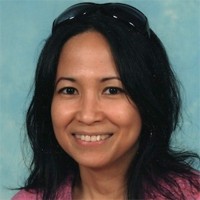The Murder of Roger Ackroyd is the best mystery novel ever written. Six hundred crime writers said so in 2013.
And Then There Were None is The World’s Favorite Christie. More than 15 thousand readers nominated their favorites in the summer of 2015. The vote was conducted in over 100 countries, including Brazil, Poland and India. (Roger Ackroyd came in third, after Murder on the Orient Express.)
The Mousetrap is the world’s longest-running stage production. It opened at London’s West End in 1952 and has logged more than 26 thousand performances. (The show in second place has less than half of that.)
The woman responsible for all this was born Agatha Miller on September 15, 1890.
She grew up in the picturesque seaside town where she was born: Torquay in Devon, England. According to her estate, only the Bible and the works of Shakespeare outsell her mystery books. Agatha Christie, Queen of Crime, is the most successful novelist ever.
The youngest child of an upper-middle-class family, Agatha often described her childhood as “very happy.” Her father Frederick was a wealthy American sent to Switzerland for his education. In contrast, girls didn’t receive formal schooling back then. Fortunately for us, Agatha’s mother Clara insisted on educating her children, and Agatha was able to read by age 5. Taught by her parents as well as tutors, she particularly enjoyed arithmetic. Could this partly account for the attention to detail she later brought to her plots?
Agatha’s siblings were much older: her brother Monty by 10 years, and her sister Madge by 11 years. She therefore spent much of her time alone, and thus developed a playful imagination and an intuitive approach to life – not to mention a dislike of discipline. She read avidly, of course, and was a fan of Conan Doyle’s Sherlock Holmes.
When she was 11, Agatha’s father died. She later said this event marked the end of her childhood. She was sent to school the following year and then to Paris to finish her education. Returning at age 20, she accompanied her mother to Cairo and discovered a love of travel. They stayed for three months, and Egypt became the setting of Agatha’s first novel, Snow Upon the Desert. You’ve never heard of this book? That’s because every publisher rejected the manuscript. It was after she had made her name that Egypt would feature in one of her successes, Death on the Nile (1937).
How did she acquire her famous last name? While engaged to someone else, Agatha met army officer Archie Christie at a dance. They fell in love and got engaged before World War I broke out. Then he served in France while she volunteered at a hospital, and he came back to marry her on Christmas Eve in 1914.
By the end of the war, Mrs. Christie had qualified as an “apothecaries’ assistant” and possessed an impressive knowledge of medicines and poisons. This, as well as a dismissive remark made by her sister, apparently, inspired her to plunge into crime fiction and write her actual first novel. The Mysterious Affair at Styles, published in 1920, introduced the world to Belgian detective Hercule Poirot and his sidekick Arthur Hastings.
By then, Agatha was the mother of 1-year-old Rosalind, her only child. However, her marriage would last for only seven more books. Book number five, Roger Ackroyd (1926), brought fame and occasionally begrudging admiration; however, mere months later, Archie declared he was in love with another woman. In December 1926, Agatha disappeared for 10 days.
It took thousands of police officers and volunteers to locate her at a hotel in Harrogate, where she was using a pseudonymn. She never explained her actions. The real-life mystery made the front page of The New York Times, but Agatha would never speak about it afterwards. The Christies divorced in 1928. However, due to its bankability, Agatha retained her married name as a writer even after she remarried two years later.
It was to archaeologist Max Mallowan that she remained happily married for the rest of her life. She traveled with him on his digs and went on to write 66 detective novels and 154 short stories, among other works. She became a Dame of the British Empire in 1971, three years after Max was knighted, and was therefore multiply titled: Dame Agatha, Lady Mallowan, Queen of Crime.
No writer represents the Golden Age of Detective Fiction better than Agatha Christie. Although her plots can be criticized as formulaic, fans enjoy the classic “whodunit” structure she popularized: a body is found, usual and unusual suspects strew red herrings about, and the detective gathers everyone around to explain how and why the murderer did it.
Perhaps it’s because she was such a curious and speculative child. Perhaps her books attract readers with those same traits. Even she was sometimes puzzled by her own appeal. Referring to the success of The Mousetrap, she remarked, “People like it, but who can say why?” It’s a mystery.

Printer Friendly Version

